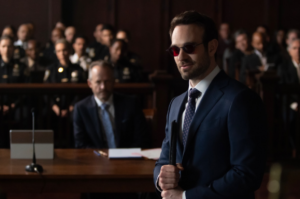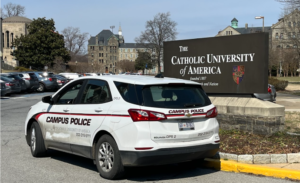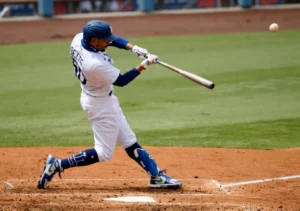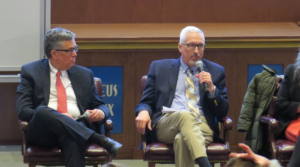Movie Review: The Many Saints of Newark
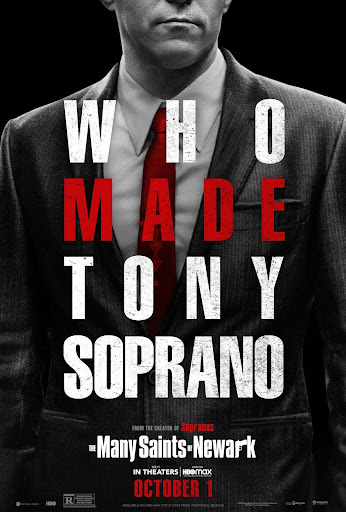
Image Courtesy of IMDb
By Jeremy Perillo
The prequel movie to the infamous HBO series The Sopranos was released on October 1, to much anticipation amongst the TV show’s devoted fan base. The Many Saints of Newark, written by Sopranos creator David Chase, takes place during the 1960s and 70s in Newark, New Jersey, and follows the mobster Dickie Moltisanti and his teenage nephew, Tony Soprano, amid the city’s 1967 riots.
Before reading my review of this movie, one might consider catching themselves up on the top 5 Sopranos episodes everyone should know. Although obvious, given the nature of this article, be warned that there will be spoilers.
First, one of the best parts of this movie was the acting, particularly those actors who were portraying already established characters. Vera Farmiga perfectly emulated Livia Soprano in all her sociopathic and manic depressive tendencies. Leslie Odom Jr. introduced us to the new and complex role of Harold McBrayer and his relationship with the DiMeo crime family. Corey Stoll was able to reintroduce Junior Soprano as the weak and spiteful older brother to Tony’s father, Johnny Boy Soprano. Johnny Boy was played by Jon Bernthal, and while his role was significantly minimized, he was able to show the inflated arrogance and mobster charm that we see in various flashbacks in the TV show.
One of the biggest expectations of this movie was how well Michael Gandolfini would be in playing a younger version of Tony Soprano, who his late father, James Gandolfini, played in the show. Michael was able to capture what one might expect of a young Tony Soprano before the violence and corruption that comes with being in the mob. The audience could certainly see glimmers of Tony’s rage and violence sprinkled in his performance throughout the movie, manifesting his eventual evolution into a mob boss.
Many fans of The Sopranos were excited to see Michael Gandolfini’s debut performance in this movie, particularly because he emulated his father’s past role. Additionally, given the nature of the TV show, many were looking forward to seeing Tony’s relationship with his “uncle” Dickie Moltisanti, who serves as his mentor and is only mentioned in the TV show. Alessandro Nivola had the opportunity to make the role his own, given that no one played this character in the TV show, and his performance was well-performed and on par with what is to be expected by this class of characters.
Where criticisms for the movie begin is in the perceived relationship between Tony and Dickie in the movie as compared to what was expected. One can see the hold that Dickie has as a father figure (Tony’s father did a multi-year stint in prison) on Tony, but, regardless, the relationship comes across as underdeveloped in the movie. We hear Tony in the TV show talk about Dickie’s influence and his admiration, but we do not get that depth from the movie. The movie spends more time exploring Dickie’s sexual escapades with his late father’s young wife than it does diving into his and Tony’s relationship.
This movie was intended to focus on Dickie, and he’s got other things going on other than guiding his nephew through his teenage years, but we are in a Sopranos world after all—there is no Sopranos without Tony.
One of the other enjoyable aspects of this movie was seeing younger versions of the characters the audience has become familiar with from the TV show. Livia, Junior, Paulie, Silvio, Jackie, and Janice were some of the characters who made the film feel like a prequel. The great casting and the performance from the actors in adapting their “older” selves was certainly a plus. Beyond the actors/characters themselves, the movie incorporated stories, anecdotes, and noted other characters from the Sopranos world. Making those connections, like finally finding out who put out Jackie’s hit, certainly satisfied the Soprano-fanboy within me.
However, David Chase sacrificed a lot by keeping the movie at a strict 120 minute running time; a lot of the issues with this movie can be tied to this. One can sympathize with sticking with a limit, as to not go overboard, but such a low number cheapened the quality of the movie. Because of the nature of being a prequel, and wanting to stick to a stringent running time, there were times where it was difficult to determine which character was on screen. When Tony fights another teenager, while Carmela (who only has this one scene) stands by near a telephone booth, it was not abundantly clear that it was in fact Jackie Aprile, a character also in the TV show. There are a couple of other similar instances where viewers found themselves more concerned with trying to figure out which character was in the frame, rather than following the storyline.
The way the movie was advertised ultimately sensationalized the movie, and portrayed a false narrative, to an extent that falsified the reality of the movie. Maybe one was naive in expecting Tony to be the center of this film as well as the show, but at the very least, it’s fair to say that there would have been a more developed role with Dickie. Beyond that, the 1967 Newark race riots, which play a role in the premise of the film, made up a major part of the trailer, making it seem like it was going to play a definitive place in the plot. While it does have some development and takes up a good chunk of the film, how little focus was put on the riots as a part of the larger storyline is surprising given its emphasis in its advertising.
Overall, I would recommend people to watch this movie. It is certainly enjoyable; seeing things that were told as stories or seeing a younger version of your favorite Sopranos character is worth the watch in itself. But I think it is fair to say I was disappointed in the end result and certainly have some qualms with the creative/developmental aspects of the film. Maybe my high expectations were naive, but I think the Soprano brand that David Chase has built deserved such a high presumption of greatness.



